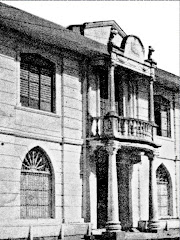Understanding Our Labor and Employment Data
A few days ago, the government released the employment data for 2009. They show that the Philippines hasn’t been greatly affected by the global economic crisis, at least, not yet. As of January 2009, employment rate is 92.3% or an unemployment rate of only 7.7%. They are not significantly different from the figures in the same period last year (Jan 2008), which are: 92.6% employment rate and 7.4% unemployment rate.
We can better appreciate the data if we know what the figures really mean.
Labor and employment data are obtained by the government through a survey conducted quarterly. A series of questions are asked from sample respondents. For ease of recall, all answers to the questions refer only to the previous week.
The primary question is whether the respondent has worked during the past week even for only ONE HOUR for pay or profit, or without pay. Kaya, kung nakapagtrabaho ka noong nakaraang lingo, kahit na ISANG ORAS lamang (at wala ka nang trabaho the rest of the week), you will be counted as employed.
The National Statistical Coordination Board’s exact definition of an employed person is “any member of the labor force who worked during the past week even for only one hour for pay or profit, or work without pay on the farm or business enterprise operated by a member of the same household related by blood, marriage or adoption.”
So next time you see employment figures, you should be asking, what kind of work do they have – are they fully employed? Baka naman they are working only 8 hours a week when full-time work is at least 40 hours. So, magkano lang ang kita niya, mabuti kung consultant na Dollar per hour ang sweldo. Di ba Ed?















